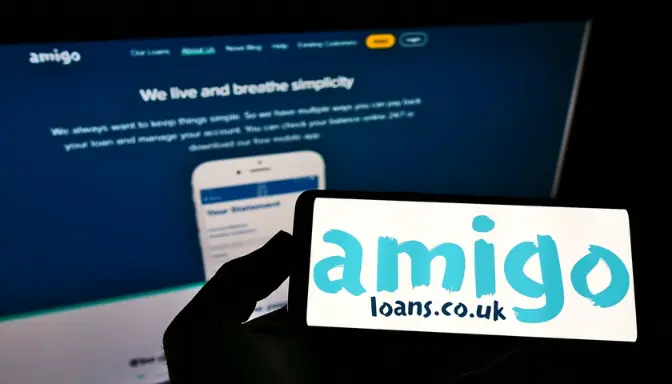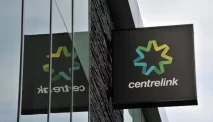Diksia.com - Amigo Loans was a company that specialised in providing subprime loans with payments guaranteed by a borrower’s friend or family member. The company claimed to offer a fair and flexible alternative to people who could not access credit from mainstream banks, but also charged high interest rates of 49.9% APR. Amigo Loans was founded in 2005 and grew rapidly in the UK market, reaching a peak valuation of £1.3bn in 2018.
However, the company faced a series of challenges that led to its demise, including regulatory scrutiny, customer complaints, legal disputes, and financial difficulties. In March 2023, Amigo Loans announced that it would stop lending and enter into an orderly wind-down, leaving thousands of customers and shareholders in limbo. This article will examine the rise and fall of Amigo Loans, and the implications for the subprime lending sector and the wider society.
The Business Model of Amigo Loans
Amigo Loans operated as a guarantor lender, which means that it required borrowers to have a guarantor who agreed to repay the loan if the borrower defaulted. The guarantor was usually a friend or a family member of the borrower, who had a better credit score and income than the borrower. The guarantor had to pass a credit check and an affordability assessment by Amigo Loans, and sign a legally binding contract to guarantee the loan.
Amigo Loans offered loans of up to £10,000, with a repayment term of up to five years, and an interest rate of 49.9% APR. The company claimed that its interest rate was lower than other high-cost credit products, such as payday loans or rent-to-own schemes, and that it did not charge any fees or penalties for late or missed payments. Amigo Loans also claimed that it helped borrowers improve their credit ratings, as it reported their repayments to credit reference agencies.
Amigo Loans targeted customers who had poor or limited credit histories, who were often excluded from mainstream financial services. The company marketed itself as a friendly and responsible lender, who treated customers fairly and with respect. The company used the slogan “Loans with a human touch”, and emphasised the personal relationship between the borrower and the guarantor, as well as the customer service provided by the company. Amigo Loans also relied on word-of-mouth referrals and online reviews to attract new customers, and offered incentives such as cashback and vouchers to existing customers who introduced new borrowers or guarantors.
Amigo Loans was able to grow rapidly in the UK market, as it filled a gap in the supply of credit for subprime customers. The company benefited from the aftermath of the 2008 financial crisis, which reduced the availability and affordability of credit from mainstream banks, and increased the demand for alternative sources of finance. Amigo Loans also faced little competition from other guarantor lenders, as it had a first-mover advantage and a strong brand recognition.
The company expanded its customer base from 25,000 in 2011 to 225,000 in 2018, and its loan book from £60m to £730m in the same period. The company also reported strong financial performance, with revenues of £271m and profits of £89m in 2018. In June 2018, Amigo Loans listed on the London Stock Exchange, with a market capitalisation of £1.3bn, making it one of the largest subprime lenders in the UK.
The Challenges Faced by Amigo Loans
However, Amigo Loans also faced a number of challenges that threatened its sustainability and reputation. The company was subject to increasing regulatory scrutiny and intervention, as the Financial Conduct Authority (FCA) tightened its rules and oversight of the high-cost credit sector. The FCA introduced a price cap on payday loans in 2015, and extended it to other forms of high-cost credit in 2019, limiting the interest and fees that lenders could charge.
The FCA also imposed stricter requirements on lenders to conduct affordability checks and treat customers fairly, especially those in financial difficulty. The FCA also launched investigations into the practices of Amigo Loans, and found that the company had breached its rules and put customers at a high risk of harm. The FCA found that Amigo Loans had failed to assess properly whether borrowers or guarantors could afford to repay the loans, and had put pressure on customers to sign up for loans or act as guarantors.
The FCA also found that Amigo Loans had not dealt with customer complaints adequately, and had not communicated clearly with customers about their rights and obligations. The FCA decided not to impose a fine on Amigo Loans, as it feared that it would cause the company to collapse, but ordered the company to improve its governance, systems, and processes, and to compensate customers who had been affected by its misconduct.
The regulatory actions and investigations had a negative impact on the reputation and performance of Amigo Loans. The company faced a surge of customer complaints, which increased from 1,000 in 2018 to 25,000 in 2020. The majority of the complaints related to the mis-selling of loans, or the unfair treatment of customers in arrears.
The company also faced a rise in defaults and impairments, as many customers struggled to repay their loans due to the Covid-19 pandemic and the economic downturn. The company had to set aside £151m in provisions for customer redress and impairments in 2020, which wiped out its profits and pushed it into a loss of £38m. The company also had to suspend its dividend payments and withdraw its guidance for future earnings.
The company also faced legal disputes and boardroom turmoil, which added to its woes. The company was involved in a legal battle with its founder and former chief executive, James Benamor, who owned 61% of the company through his investment vehicle, Richmond Group. Benamor accused the company of mismanaging the business and failing to address the regulatory issues, and demanded that the company change its strategy and leadership.
Benamor also attempted to sell his stake in the company, or take it private, but failed to find a buyer or secure shareholder approval. Benamor resigned from the board in March 2020, but continued to exert pressure on the company through public statements and legal actions. The company also saw several changes in its senior management, as its chief executive, chief financial officer, and chairman all resigned or stepped down in 2020 and 2021.
The company appointed a new chief executive, Danny Malone, in September 2020, who tried to stabilise the company and negotiate a rescue plan with the regulators, creditors, and shareholders.
The Liquidation of Amigo Loans
However, the company was unable to secure the capital and support it needed to survive and continue lending. The company had been trying to raise £45m from potential equity investors, but did not receive enough interest or offers. The company also failed to reach an agreement with the FCA and its creditors on a scheme of arrangement, which would have capped the amount of compensation it had to pay to customers, and allowed it to resume lending under a new business model.
The company had proposed to pay £35m in cash and 15% of its future profits to customers who were owed redress, which would have resulted in customers receiving an estimated 10p in the pound. However, the FCA rejected the proposal, as it considered it unfair and inadequate, and suggested that the company should pay more to customers, or seek alternative sources of funding. The company also faced opposition from some of its creditors and shareholders, who argued that the scheme of arrangement would undervalue the company and dilute their interests.
In March 2023, Amigo Loans announced that it would stop lending and enter into an orderly wind-down, with all surplus assets to be transferred to the creditors of its compensation scheme. The company said that it had no other viable options, and that it had exhausted all possible avenues to save the business. The company said that it would continue to collect the outstanding loans from customers, and provide support and assistance to those in financial difficulty.
The company also said that it would update its customers and stakeholders on the progress and outcome of the wind-down process. The company’s shares plunged 75% to 0.4p on the news, wiping out its market value and leaving its shareholders with nothing. The company’s customers who were owed compensation were also left disappointed, as they would receive an estimated 17p in the pound, according to PwC, which was appointed to supervise the process.
The Implications of the Liquidation of Amigo Loans
The liquidation of Amigo Loans has significant implications for the subprime lending sector and the wider society. The liquidation of Amigo Loans marks the end of one of the largest and most prominent subprime lenders in the UK, which had a market share of 88% in the guarantor lending segment. The liquidation of Amigo Loans also reflects the challenges and risks faced by the high-cost credit sector, which has been under pressure from the regulators, the courts, the media, and the public, for its alleged predatory and irresponsible practices.
The liquidation of Amigo Loans also raises questions about the future of the subprime lending sector, and the availability and affordability of credit for subprime customers, who are often vulnerable and financially excluded. The liquidation of Amigo Loans also has social and economic consequences, as it affects the lives and livelihoods of thousands of customers, guarantors, employees, and shareholders, who are left with debts, losses, and uncertainty.
The Alternatives to Amigo Loans
The liquidation of Amigo Loans leaves a gap in the market for subprime customers who need access to credit, but cannot obtain it from mainstream lenders.
However, there are some alternatives to Amigo Loans, which may offer similar or better products and services to subprime customers. Some of these alternatives are:
- Other guarantor lenders: There are still some other guarantor lenders operating in the UK, such as TrustTwo, Buddy Loans, TFS Loans, and George Banco. These lenders offer loans of up to £15,000, with interest rates ranging from 29.9% to 49.9% APR. However, these lenders also have similar requirements and risks as Amigo Loans, such as the need for a guarantor, the high cost of borrowing, and the potential impact on the credit ratings and relationships of both the borrower and the guarantor.
- Credit unions: Credit unions are not-for-profit financial cooperatives, which provide savings and loans to their members, who share a common bond, such as living in the same area, working for the same employer, or belonging to the same church or trade union. Credit unions offer loans of up to £15,000, with interest rates capped at 42.6% APR. Credit unions also offer more personalised and flexible service, and may consider lending to people who have poor or no credit history, as long as they can demonstrate their ability and willingness to repay. However, credit unions may have limited availability and accessibility, as they depend on the size and resources of their membership, and may not have online or mobile platforms.
- Community development finance institutions (CDFIs): CDFIs are social enterprises that provide affordable and responsible finance to individuals and businesses who are excluded from mainstream financial services. CDFIs offer loans of up to £15,000, with interest rates ranging from 19.9% to 39.9% APR. CDFIs also offer advice and support to help customers improve their financial situation and credit rating. However, CDFIs may have limited coverage and capacity, as they depend on the funding and support from the government, the private sector, and the social sector.
- Peer-to-peer lending platforms: Peer-to-peer lending platforms are online platforms that match borrowers and lenders directly, without the involvement of intermediaries such as banks. Peer-to-peer lending platforms offer loans of up to £25,000, with interest rates determined by the supply and demand of the market, and the risk profile of the borrower. Peer-to-peer lending platforms also offer more transparency and flexibility, as borrowers and lenders can choose their own terms and conditions, and communicate directly with each other. However, peer-to-peer lending platforms may have higher eligibility criteria and fees, as they rely on credit checks and verification processes, and charge service and transaction fees to both borrowers and lenders.
Conclusion
Amigo Loans was a company that offered subprime loans with guarantors, and claimed to provide a fair and flexible alternative to people who could not access credit from mainstream banks. The company grew rapidly in the UK market, and reached a peak valuation of £1.3bn in 2018. However, the company faced a series of challenges that led to its liquidation, including regulatory scrutiny, customer complaints, legal disputes, and financial difficulties.
The liquidation of Amigo Loans has significant implications for the subprime lending sector and the wider society, as it affects the availability and affordability of credit for subprime customers, and the lives and livelihoods of thousands of customers, guarantors, employees, and shareholders. The liquidation of Amigo Loans also leaves a gap in the market for subprime customers, who may seek alternative sources of finance, such as other guarantor lenders, credit unions, CDFIs, or peer-to-peer lending platforms.
However, these alternatives may also have their own advantages and disadvantages, and may not be suitable or accessible for everyone. Therefore, subprime customers should carefully consider their options and needs, and seek independent advice and support, before applying for any form of credit.






